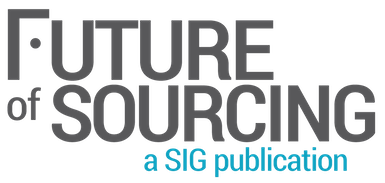“You are your words.” - American Heritage Dictionary
“Being forced to write clearly means, first, you have to think clearly . . . the two processes are inextricably intertwined.” - Fareed Zakaria, In Defense of a Liberal Education
The ability to communicate in a clear, compelling and concise manner is a challenge for businesses worldwide. In the realm of marketing, the need is particularly acute as the efforts of marketing are among the first to impact the customers’ perception of your company and its products or services.
Effective writing is very difficult. It is even more difficult when writing in English, especially if it is not your native language. The problem is even more pronounced in outsourcing - especially in those areas of outsourcing in which absolute command of the English language is a core offering, such as publishing, legal, and medical.
Why is this such a thorny, persistent problem for most offshore providers?
Clearly, much of the problem is that learning to write English as a second language is daunting in the best of cases - often, very challenging even for very well educated Americans in the USA.
Let’s look at a classic example: this one, like many, abounds on almost every website from offshore providers, regardless of size, as well as customer-facing content as a sales tool. To protect the innocent or the guilty, depending on your perspective, the provider will remain anonymous...:
“This quality model will help in deliver of quality reports with excellent quality services to a new generation of users, but it will also balance the vast potential of emerging business opportunities made possible by the quickly maturing situations when appear.”
Not only is the grammar very poor, but the sentence structure is convoluted and bizarre. I, Jim Hill, have an MA in English with an emphasis in rhetoric and composition; worked in sales and marketing in outsourcing in the USA for over ten years; and have done considerable writing in the outsourcing vertical. However, I cannot even begin to decipher this sentence. Also, I cannot even edit it because I do not understand what the meaning is supposed to be that they are trying to convey. I have asked others, and they cannot decipher it either.
Consequently, the message is so obscure for most readers - potential customers - that they are often left scratching their heads and wondering: “What does this mean, and why is this important to me?” Actually, this can and does get much worse (if you can imagine that). A very large offshore provider I worked with misspelled the word “English” on their web site when describing their ability to successfully sell editorial services to publishers. Ouch.
(Worth noting: most web statistics clearly indicate that if the customer is not attracted to the content within 60 seconds, they often bolt, and rarely return. Clearly, this is not a good marketing situation supporting the sales function.)
This article highlights the background issues to this challenge as well as the importance of effective English in customer-facing content as a highly disruptive brand differentiator. Some may find this an outrageous statement, but let’s review some stats on functional illiteracy as background to give this thesis some perspective.
The simple and well documented facts are that many in the USA, and worldwide, are “functionally illiterate.” What does this term mean? It generally means that someone struggles on a daily basis to understand language, whether reading or, especially, writing. Many tend to think of functional illiteracy as being solely an issue with the very poor, uneducated, and those living in third world countries. Also, most tend to view the following statistics as if this is an illiteracy problem only affecting children and teenagers; however, the facts are often even more disturbing. Many adults with college degrees often struggle to read and comprehend what they are reading, and even more so to write an effective and grammatically correct 200-word, one-page essay, that is clear, succinct, and obvious. '
Some recent statistics about functional illiteracy in India from the United Nations Educational Scientific & Cultural Organisation (UNESCO) a few years ago: “India has by far the largest population of illiterate adults at 287 million, amounting to 37% of the global total.”
And in the USA from the US Department of Education and the National Institute of Literacy just a few years ago: “32 million adults in the USA can’t read. That’s 14% of the population. 21% of adults in the USA read below the 5th grade level, and 19% of high school graduates can't read... 50% of adults cannot read a book written at an eighth grade level... 44% of American adults do not read a book in a year.”
Wow, that is sobering. The disconnect with much of these statistics is that many of these people do, in fact, have a college degree, or even a graduate degree in computer science or an MBA in the outsourcing industry...
Clearly, for businesses where communication is often one of the most strategic skills, as in outsourcing, this is more than just depressing. Ironically, the most frightening part of these statistics is that many of these “adults” are considered by others to be well educated. As such, one of these adults may very well be the C-level executive with a six-figure income in the large corner office next to you. Both Thom and I have experienced this firsthand. This may sound shocking to many, but we have seen this many times in our respective 20+ years in outsourcing and in other industries as well.
Making the superficial assumption that, because a C-level executive has a high-powered job with multiple graduate degrees, he or she can write well, is probably an illusion.
The reasons for this dilemma are very socially and culturally complicated and may hinge on the fact that most people just do not read much anymore due to work schedules, other forms of digital entertainment, and the need to write abbreviated, cryptic messages through phone texting. This, and the fact that very few people spend time engaged in serious writing activities other than email and social media where technical acronyms abound and abbreviated sentences often lack any formal grammatical structure or editorial quality.
Effective writing requires focused concentration and discipline - very time-consuming - often lacking in many societies whether in the east or the west. When was the last time you received a handwritten letter in the mail? An executive vice president for a large offshore provider once asked Jim, “Why do you make such an issue of editorial quality?” He answered: “Why do you make such an issue of financial and accounting quality?” Conversation over.
Fareed Zakaria, in his most recent book, In Defense of a Liberal Education, makes a very astute comment about the connection with writing and thinking that is very compelling as noted above. In other words, quality writing is not so much about editorial and grammatical issues as it is about thinking and problem-solving skills. The connection is critical. Consequently, someone who does not write well also probably does not have very clear thinking and problem-solving skills. And there is the bigger issue.
So, the logic of our argument is that if you learn how to write well, you are probably so special that the positioning of your content has a very high chance of being so differentiated that customers often want to know more about you and your services. Words and marketing are tightly integrated. Ann Handley, in her best-selling book, Everybody Writes, understands this very well with this statement:
“If you have a web site, you are a publisher. If you are on social media, you are in marketing. And that means that we are all relying on our words to carry our marketing messages.”
So, what are the critical issues to improve writing as a customer-facing tool for potential customers
Know what you do not know. If you are not a good writer or communicator, you should at least be aware of the deficiency, and delegate to someone who can write and communicate effectively, especially with marketing content that supports the sales function.
Never make assumptions about C-level executives. Education and high-powered titles are impressive, but they are often not related to quality writing skills. This may seem shocking, but it is very true. Most do not even write their own memos, letters, and emails.
Understand quality editorial. Accept the business fact that quality editorial is the cheapest and fastest way to improve marketing, and sales. Hiring and using quality editors and proofreaders is not rocket science: it's very simple and inexpensive with a highly measurable ROI with new customers and sales.
Set a high standard for editorial quality as a key marketing tool. Senior, C-level management should embrace and advocate the importance of effective writing in all customer-facing content, and with all employees. This is especially true even if the C-level executive does not write well. This should be enforced with the same discipline applied to internal communications.
Never produce customer-facing content without proofreading. All content should be proofread several times before ever going public. And the content should be edited and proofread by professionals especially in the geography where the sales are targeted. This applies later in the process, during the deal pursuit, when submitting a RFX response as well. If you are an offshore provider in Asia and targeting the USA for sales, find a qualified editor in the USA to review as needed. Geography matters a lot. Language is more than words: there are also culture and context to be considered.
With companies increasingly using marketing automation tools to track marketing effectiveness, the problem of effective writing is magnified on a massive scale. How can one track the effectiveness of the tool if the marketing content is grammatically flawed? Would you outsource your marketing department to a company that cannot get its own marketing done correctly? In publishing outsourcing and legal process outsourcing the problem is even more pronounced as the correct use of the English language is considered a core competency that reflects directly on the professionalism of the provider.
The importance of quality writing cannot be overstated, as poorly crafted marketing content can quickly kill a potential sale long before the salesperson ever gets to engage. Trite though it may be, it still remains true: you never get a second chance to make a first and lasting impression.
About the Authors
 Jim Hill has been in traditional publishing with senior roles as sales director, marketing director, and publisher in STM, academic, and trade publishing for over 20 years. Jim has worked with offshore providers in publishing for more than ten years in global sales and marketing including Innodata-Isogen, SPS, Firstsource Solutions, as well as dozens of offshore providers in a consulting role. He has one of the leading LinkedIn profiles in the industry and has published more than 20 articles with the major outsourcing magazines as well as on LinkedIn about the industry.
Jim Hill has been in traditional publishing with senior roles as sales director, marketing director, and publisher in STM, academic, and trade publishing for over 20 years. Jim has worked with offshore providers in publishing for more than ten years in global sales and marketing including Innodata-Isogen, SPS, Firstsource Solutions, as well as dozens of offshore providers in a consulting role. He has one of the leading LinkedIn profiles in the industry and has published more than 20 articles with the major outsourcing magazines as well as on LinkedIn about the industry.
 Thom Mead is a well-known thought leader who has published dozens of articles, presented at conferences and appeared on TV. Highly respected for his skills in leading company strategy, marketing and sales, Thom has headed these functions for leading companies worldwide including EDS, ACS, Unisys, Spherion and Firstsource. Currently Thom is heading the business and market development for the Insurance Industry practice at Optymyze. Thom can be reached at tmead1962@yahoo.com.
Thom Mead is a well-known thought leader who has published dozens of articles, presented at conferences and appeared on TV. Highly respected for his skills in leading company strategy, marketing and sales, Thom has headed these functions for leading companies worldwide including EDS, ACS, Unisys, Spherion and Firstsource. Currently Thom is heading the business and market development for the Insurance Industry practice at Optymyze. Thom can be reached at tmead1962@yahoo.com.



